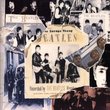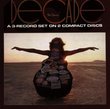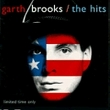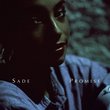| All Artists: Janis Ian Title: Society's Child: Verve Recordings Members Wishing: 1 Total Copies: 0 Label: Polygram Records Original Release Date: 8/22/1995 Release Date: 8/22/1995 Genres: Folk, Pop, R&B, Rock, Classic Rock Styles: Traditional Folk, Contemporary Folk, Singer-Songwriters, Oldies, Soul, Folk Rock, Psychedelic Rock Number of Discs: 2 SwapaCD Credits: 2 UPC: 731452759122 |
Search - Janis Ian :: Society's Child: Verve Recordings
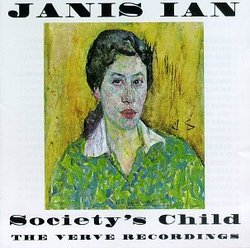 | Janis Ian Society's Child: Verve Recordings Genres: Folk, Pop, R&B, Rock, Classic Rock
fine collection of her earlier work |
Larger Image |
CD DetailsSynopsis
Product Description fine collection of her earlier work Similarly Requested CDs
|
CD ReviewsThe female bard of teen age angst Bruce Kendall | Southern Pines, NC | 05/22/2000 (5 out of 5 stars) "These songs were the anthems of my late teens. Janis Ian captured (better than any other artist I'm aware of) the awkwardness, the waywardness and the isolation of mid-teen existence. She was also an incedible chronicler of the social changes that came about in the mid to late 60's. "Society's Child" had every bit as big an impact as the book and movie, "Black Like Me." For anyone who has experienced or is experiencing the pangs of growing up and of coming to terms with his/her burgeoning identity, I would wholeheartedly recommend this collection. The Verve years were her most productive. She was 14 when she signed with the label and she was in every sense of the word, a prodigy. I don't know if I could have gotten through some of the darker periods of my teenage years without her. Thank you wherever you might be now, Janis. You touched my soul with yours. Your lyrics kept me sane. Your music left an indelible impression on my heart. As far as folk artists of the period are concerned, she is in the front ranks with Ritchie Havens, Tim Buckley, Phil Ochs and Tim Hardin." A must for Ian fans or folk/rock die-hards hyperbolium | 12/20/2000 (4 out of 5 stars) "While it is likely that only hardcore Janis Ian fans will enjoy this four-album collection from start to finish, nearly any fan of the late 60's folk/rock sound will enjoy a good portion of its songs. To say that Society's Child is the only good song on this set is way off the mark. The remainder of Ian's first album, "Janis Ian," also appears here, and it remains a notable work of the period. True, there are a number of too-angst-ridden, help-I'm-trapped-in-my-adolescent-neurosis songs here, too, mainly from the middle two albums, "The Secret Life of J. Eddy Fink" and "For All the Seasons of Your Mind." But Ian shines again on "Who Really Cares," the final album of her Verve contract and a finely crafted set of jazz-influenced folk/pop (her voice and writing had both ripened by that time--1969). A keeper for Ian fans. Also very nicely packaged, with lots of liner notes and an essay by the artist. These songs will probably never be released anywhere again (except for Society's Child, which pops up here and there), a good reason for Ian fans to add this to their collection." The early works of a folk-rock prodigy hyperbolium | Earth, USA | 08/08/2005 (5 out of 5 stars) "Among the very few artists who've had three act careers, Ian's story is one of the most satisfying double comebacks. This 2-CD set chronicles the first flush of her fame, when she signed with Verve as a teenage singer-songwriter prodigy. Just 15 when she recorded her debut album, featuring the (then) highly controversial single "Society's Child," Ian was soon drawn into a swirl of three albums in three years and quick burnout. A few more albums in the early 70s showed improving craft, but little commercial success. Her first comeback was the platinum selling "Between the Lines," which introduced her deeply introspective lyrics to a new generation of listeners, and after a few more albums, a second lull. She emerged for a third time in the early 90s, and continues to write and record to this day.
These earliest works are a piece with her famous song of interracial relationships, tackling angst-ridden topics with the sort of directness that recent artists like Alanis Morisette, Jewel and Fiona Apple are credited with introducing into the pop mainstream; perhaps the mainstream simply wasn't ready for their introduction in the mid-to-late '60s. Ian's songs confront a range of hot-button topics, including teen prostitution ("Pro-Girl"), social protest, religion, and a multitude of adolescent pains. Though at times the music seems to ape the surrounding folk-rock boom (but then, with Dylan exerting such a heavy influence, who didn't have this problem?), the clarity with which Ian translated her thoughts to lyrics makes each of these songs an emotional time capsule. Surprisingly, the early albums were produced by Shangri-Las mastermind, Shadow Morton. The histrionics he infused in the Shangri-Las productions weren't needed to underline Ian's naturally dramatic songs, and so he mixed acoustic guitar accompaniments with light folk-rock sounds from ace studio musicians. Even when the backings ventured into light psychedelia, blues-rock or baroque orchestrals, they never overwhelmed Ian's words, and though the production can sound dated, it never distracts from the visceral nature of the lyrics. This double-CD collects everything from Ian's four Verve albums except the track "Snowbird" from her last LP, "Who Really Cares." The limit of the CD medium required one song to be dropped, and this is the one that Ian herself selected. Detailed liner notes, with generous quotes from Ian, tell her story of these early recordings from the inside. [©2005 hyperbolium dot com]" |

 Track Listings (21) - Disc #1
Track Listings (21) - Disc #1